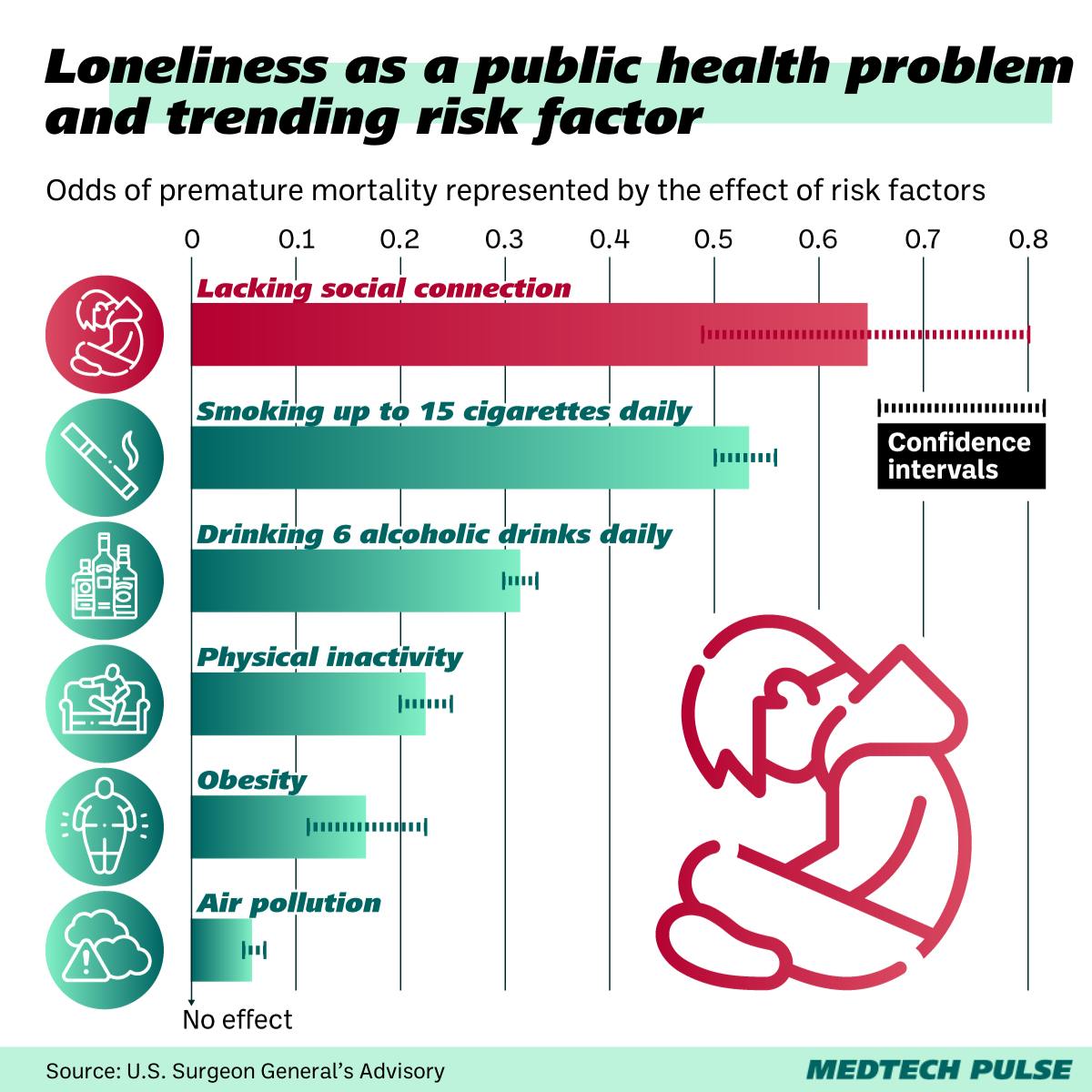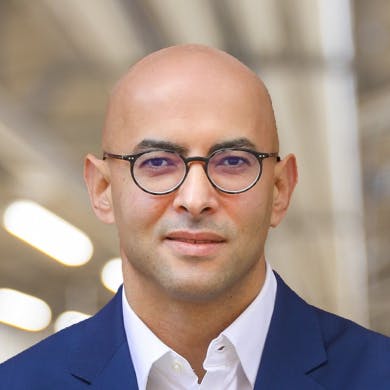Sometimes, technology makes things worse
I’m sure you’ve seen it. What did you think of Apple’s launch of their first new product in a decade?
If you’ve been reading MedTech Pulse for some time, you can probably imagine that I’m excited about what the Apple Vision Pro headset may mean for the medtech industry. For sure, this product launch signals the growing legitimacy of VR technology, which is slated to especially impact medicine as it applies to medical training and VR-based therapeutics.
But there’s another part of the Apple Vision Pro discussion that I really want to touch on today. It is that of loneliness—and how technology seeks to address loneliness or makes it worse.
Last month, the U.S. Surgeon General published an advisory on loneliness as a public health problem. The advisory discussed the mechanics of something I’m sure many of us intuitively know: how social connection impacts people’s health and how loneliness can (and should) be urgently addressed. The report’s recommendations included separate calls to action for the health sector and for technology companies crafting the so-called “digital environment”—which may, in certain contexts, exacerbate social isolation.

This report has made waves across healthcare and the digital space. Our Pulse Check interviewee this edition, Way CEO Bentley Adams, even brought it up during his interview! And it made me wonder: How can our industry—which sits at the crossroads of healthcare and technology—leverage our unique position to address this public health issue? In other words: How can medtech help address issues where technology is part of the problem?
With respect to the loneliness epidemic, I’m encouraged by the rise of “community” as a core element of many new app-based digital health offerings. For instance, age tech companies like The Joy Club, are pairing social connection with evidence-based health & wellness initiatives.
In striving for a healthier world, I hope our industry can take a similar approach to climate change. While our industry’s reliance on plastics and fossil fuels for maintaining global supply chains does contribute to climate change, we can choose to be part of the solution. Both with the innovations we prioritize and the changes we champion in the industry status quo. Be sure to read our lead Insight article this week for more on this topic.
And what if we apply that same lens to medical AI? It’s hard to ignore: Our industry is already getting reasonable pushback for speedily implementing generative AI and other machine learning approaches to medical technology—while many potential harms are still being evaluated by regulators. However, rather than reacting to these developments with broad condemnation, I believe our industry should be celebrated for its tenacity in breaching new innovative boundaries—while, at the same time, being diligent to craft ethical guardrails as we innovate.
Tell me: What do you think about medtech’s responsibility to address issues that advancing technology may exacerbate? And will you be trying out the Apple Vision Pro?
